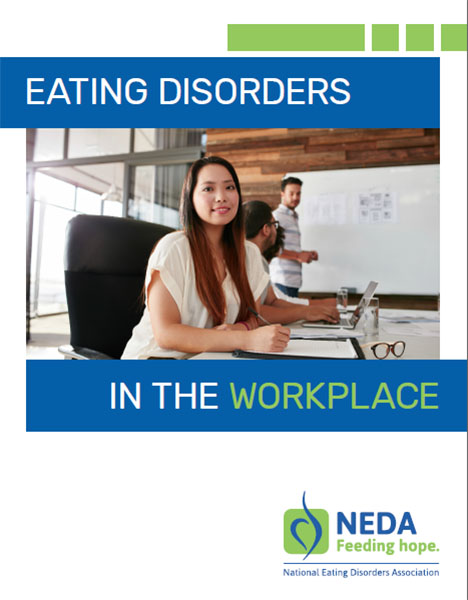Toolkits
NEDA Toolkits are free resources designed to educate on eating disorders.
Parent Toolkit
NEDA’s Parent Toolkit is a comprehensive two-part guide for anyone supporting a loved one with an eating disorder. It covers warning signs and symptoms, medical risks, the evaluation and treatment process, questions to ask providers, mealtime support, communicating with schools, and tips for advocating during medical visits—plus much more.
Download Part One: Talking About Eating Disorders ›
Download Part Two: All About Eating Disorders Treatment ›
Educator Toolkit
 The NEDA Educator Toolkit is a resource for educators, staff who work in a school setting or those who work with youth outside of school. If you want to understand more about eating disorders, if you’d like to know how to support students and young people who may be affected, this information will help you.
The NEDA Educator Toolkit is a resource for educators, staff who work in a school setting or those who work with youth outside of school. If you want to understand more about eating disorders, if you’d like to know how to support students and young people who may be affected, this information will help you.
Coach & Athletic Trainer Toolkit
 The Coach & Athletic Trainer Toolkit is a resource for staff who work in gyms, school settings, outside athletic groups, dance studios, etc. who would like to know how to support athletes who may be affected by eating disorders. We’ve included frequently asked questions and common myths about eating disorders, strategies for assisting athletes and much more.
The Coach & Athletic Trainer Toolkit is a resource for staff who work in gyms, school settings, outside athletic groups, dance studios, etc. who would like to know how to support athletes who may be affected by eating disorders. We’ve included frequently asked questions and common myths about eating disorders, strategies for assisting athletes and much more.
Workplace Toolkit
 Maintaining a healthy workplace environment is vital to the happiness and productivity of your organization. If an employee or coworker is struggling with an undetected eating disorder or disordered eating, it can take a major toll on them. Encourage eating disorders screenings to improve overall workplace wellness and to get help to those who need it.
Maintaining a healthy workplace environment is vital to the happiness and productivity of your organization. If an employee or coworker is struggling with an undetected eating disorder or disordered eating, it can take a major toll on them. Encourage eating disorders screenings to improve overall workplace wellness and to get help to those who need it.

